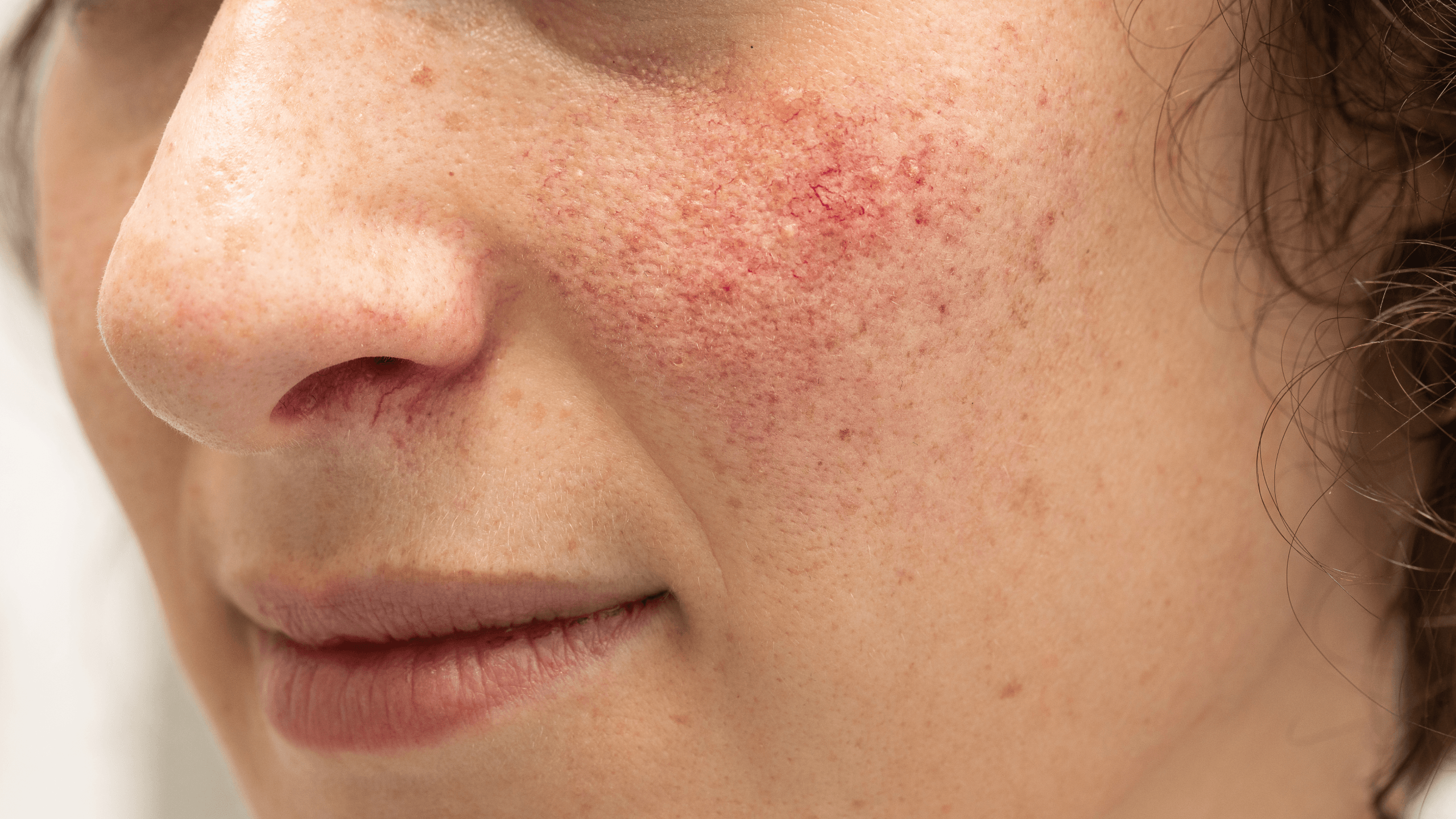
Rosacea is a skin condition that causes redness and often small, red, pus-filled bumps on the face. It is a non-contagious skin inflammation that mostly affects the skin on your nose, cheeks, and forehead. This widespread skin condition has affected millions of Americans to date.
It is divided into four subtypes- Erythematotelangiectatic Rosacea, Papulopustular Rosacea, Phymatous Rosacea, and Ocular Rosacea. Each of these subtypes has its own set of symptoms, and your skin may be suffering from more than one subtype of Rosacea. Some common symptoms include – frequent blushing, visibly broken blood vessels, permanent flush across the nose and cheeks, rashes, stinging and burning skin, and sensitivity on the skin. Rosacea is a chronic skin disease and can reduce a person’s quality of life. There is no definite cure for it, but you can successfully control it. There are various treatments to relieve the signs and symptoms and prevent them from worsening-

Prevention is better than cure.
The best way to avoid any disease is to take precautionary measures to avoid letting it happen in the first place. Dermatologists may recommend medicines and various treatments, but your routine habits also play a major role. Always use mild skin products and be gentle to your skin. Keep your face protected from harmful UV rays by applying good sunblock creams. Also, please beware of the triggers that cause new flare-ups on your face; it might be hot or cold temperatures, winds blowing on your face, eating spicy food, taking stress, etc.
Be careful with self-medication.
Don’t go overboard with beauty products that you see in the market claiming to treat Rosacea. Many cosmetic brands make extraordinary claims that are mostly bogus. Using cover-up foundations and powders may help cover redness on the face giving only temporary results. Rosacea is generally diagnosed by physical examination and medical history. At times, blood tests may be required to identify the actual subtype of Rosacea one might be suffering from. In such a situation, applying products or doing DIY treatments without consultation with an expert may worsen your situation.
Consult an experienced dermatologist.
Dermatologists are trained skin specialists, and one can easily obtain an expert opinion from them. They are in a better position to diagnose the condition and suggest treatments accordingly. They may suggest medications and regimens of antibiotic creams and oral antibiotics. If the situation doesn’t get any better, they may work with you to develop a treatment plan. The skin experts have absolute knowledge of advanced treatments in skincare to preserve your skin’s beauty and health, so one shouldn’t lose hope.
It has often been observed that people getting worried about developing Rosacea may actually not be suffering from it, and they may have another condition altogether. So it gets important to do the proper research yourself or by consulting an expert. Getting the right treatment means getting a correct diagnosis first, as each subtype gets a different treatment approach.















